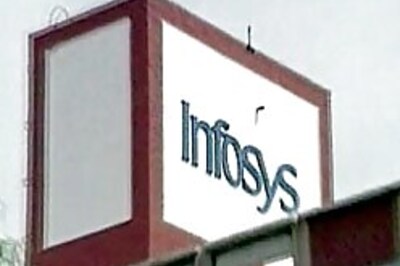
views
A recent brokerage report raised a lot of eyebrows when it said that the Essel Group firms and Reliance Group companies led by Anil Ambani top the list of publicly traded firms with highest percentage of their promoter shareholding pledged as of March 2019. Zee Entertainment promoters had 66.2% of their stake in the company pledged as of 31 March against 59.4% as of 31 December last year, according to the report by Kotak Institutional Equities. Promoter pledging in Dish TV also rose to 94.6% as of 31 March from 82.1% as of 31 December, while that in Zee Media jumped to 93.8% from 73.4%.
The case of Anil Ambani’s firms is even worse, with promoters having pledged 98.3% of their holding in Reliance Infrastructure and 96.9% in Reliance Capital, the report said. However, one Anil Ambani-led company, the bankrupt Reliance Communications, has seen a decline in the quantum of shares pledged by the promoters.
What exactly does share pledging mean?
In India, promoters are the majority shareholder group that manages the day-to-day affairs of a company. When they need money, very often, promoters of the listed companies pledge all or some of their shares with lenders. It means that these shares are offered as collateral to banks in exchange for loans. This is one of the many sources of borrowing money, especially in a volatile market with tight liquidity conditions.
Higher the pledging, greater could be the risk of volatility in the company’s stock price. This is because, as share prices fall, the overall value of the pledged collateral falls. This would put pressure on the promoter to produce more assets as collateral. Sometimes, the lender may also be forced to sell some of the shares to ensure that the loan does not turn into a bad loan. If the promoter is unable to meet obligations of borrowing, the ownership of shares is transferred to the lender, who may then sell it to recover loans.
What does the report says?
The report, which is based on an analysis of top 500 listed firms on BSE, said the total percentage of pledged promoter holdings in these 500 firms declined to 2.83% in the March quarter compared with 2.98% in the December 2018 quarter.
However, a different trend was seen in some individual companies, like the Anil Ambani and Essel group companies, where the rise in pledged shares by promoters was significant.
Here are some interesting pointers from the Kotak report:
— Promoters of 116 companies among the BSE-500 index pledged their holdings during the March quarter.
— In the March quarter, six BSE500 companies had more than 90% of their promoter holdings pledged -- CG Power, Reliance Infra, Reliance Capital, Sterlite Technologies, Dish TV and Gayatri Projects.
— The BSE500 companies that saw pledged promoter holdings declining in the March quarter include Granules India, Strides Pharma, Reliance Communications, Coffee Day Enterprises and Bajaj Consumer Care.
— The BSE500 companies that saw increased pledged promoter shareholding include JK Tyre, Reliance Capital, Reliance Infra, Dish TV, VA Tech Wabag, Adani Transmission, Parag Milk, ZEE Entertainment, JSW Energy, Max India, and Sun Pharma.
— Fresh promoter pledges were seen in JK Tyre & Industries, VA Tech Wabag, Forbes and Company, SH Kelkar and Company.



















Comments
0 comment